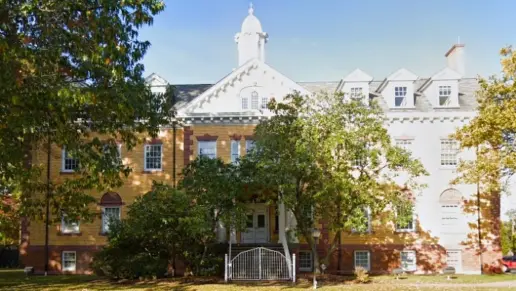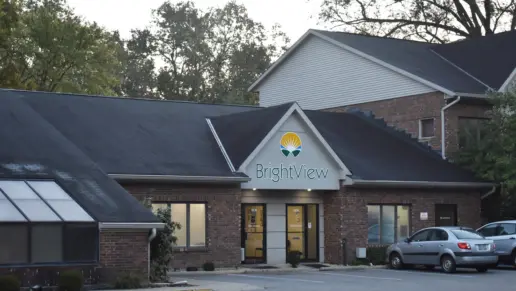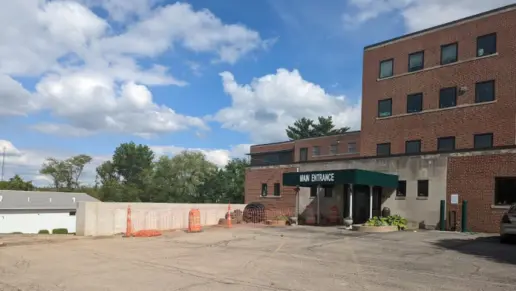About Sojourner Recovery Services – North Fair Avenue
Sojourner Recovery Services - North Fair Avenue offers substance abuse treatment and mental health services for adults in Hamilton, Ohio. They provide residential treatment where guests can focus on recovery without distractions. They also include primary care and psychiatry access for guests at the on-site clinic.
Sojourner provides assessments in person or by telehealth appointments. Your initial assessment will help the team recommend the treatment program that works best for your unique needs.
The residential program includes withdrawal management services. Guests have access to medication assisted treatment (MAT) and comfort medications to make the process easier and to prevent relapse.
Their program offers high-intensity and low-intensity services. The high-intensity program provides a structured environment with intensive treatment. Their low-intensity program is a step-down option that gives guests a secure setting with 24/7 staff supervision, but they start engaging in their communities again and work on finding a job and setting other goals.
Case management is available to help guide you through the program and connect you to outside resources for ongoing recovery. Your case manager may help with education, housing, clothing, healthcare and transportation. Sojourner also allows telehealth sessions for case management meetings.
Peer support is available to help you get the most benefit from treatment. Peer specialists can understand your addiction experiences and serve as mentors while you recover.
Once you complete residential treatment, they can refer you to one of their three outpatient locations in Hamilton. Through their various locations they can also offer crisis support, perinatal support, court outreach and recovery housing.
Latest Reviews
Rehab Score
Other Forms of Payment
Medicaid is a state based program that helps lower-income individuals and families pay for healthcare. Medicaid covers addiction treatment so those enrolled can use their coverage to pay for rehab. When a program accepts Medicaid the client often pays very little or nothing out of their own pocket.
Self-pay involves paying for treatment out of your own pocket. You can use savings or credit, get a personal loan, or receive help from family and friends to fund your treatment. If you don't have insurance or your insurance plan doesn't cover a specific program, self-pay can help ensure you still get the care you need.
Sliding scale payments are based on a client's income and family size. The goal is to make treatment affordable to everyone. By taking these factors into account, addiction recovery care providers help ensure that your treatment does not become a financial burden to you or your family, eliminating one barrier to care.
Addiction Treatments
Levels of Care
Treatments
The goal of treatment for alcoholism is abstinence. Those with poor social support, poor motivation, or psychiatric disorders tend to relapse within a few years of treatment. For these people, success is measured by longer periods of abstinence, reduced use of alcohol, better health, and improved social functioning. Recovery and Maintenance are usually based on 12 step programs and AA meetings.
Drug rehab in Ohio provides comprehensive treatment to address the physical and psychological needs of those struggling with substance use disorders. This may involve inpatient and/or outpatient care.
Many of those suffering from addiction also suffer from mental or emotional illnesses like schizophrenia, bipolar disorder, depression, or anxiety disorders. Rehab and other substance abuse facilities treating those with a dual diagnosis or co-occurring disorder administer psychiatric treatment to address the person's mental health issue in addition to drug and alcohol rehabilitation.
Opioid rehabs specialize in supporting those recovering from opioid addiction. They treat those suffering from addiction to illegal opioids like heroin, as well as prescription drugs like oxycodone. These centers typically combine both physical as well as mental and emotional support to help stop addiction. Physical support often includes medical detox and subsequent medical support (including medication), and mental support includes in-depth therapy to address the underlying causes of addiction.
Substance rehabs focus on helping individuals recover from substance abuse, including alcohol and drug addiction (both illegal and prescription drugs). They often include the opportunity to engage in both individual as well as group therapy.
Programs


Clinical Services
Trauma therapy addresses traumatic incidents from a client's past that are likely affecting their present-day experience. Trauma is often one of the primary triggers and potential causes of addiction, and can stem from child sexual abuse, domestic violence, having a parent with a mental illness, losing one or both parents at a young age, teenage or adult sexual assault, or any number of other factors. The purpose of trauma therapy is to allow a patient to process trauma and move through and past it, with the help of trained and compassionate mental health professionals.
Contact Information
294 North Fair Avenue
Hamilton, OH 45011


